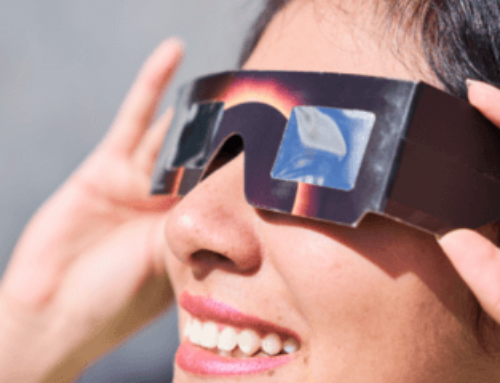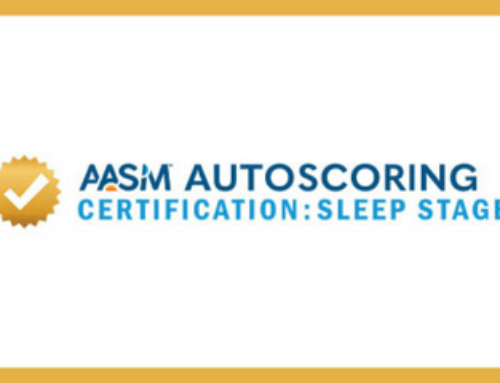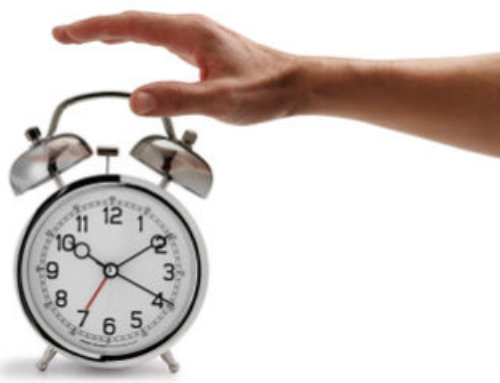EMBARGOED FOR RELEASE: 12:01 a.m. on Nov. 1, 2009
WESTCHESTER, IL. – A study in the Nov.1 issue of the journal SLEEP showsthat sleep deprivation causes some people to shift from a more automatic, implicit process of information categorization (information integration) to a more controlled, explicit process (rule based). This use of rule-based strategies in a task in which information-integration strategies are optimal can lead to potentially devastating errors when quick and accurate categorization is fundamental to survival.
Results show that sleep deprivation led to an overall performance deficit on an information-integration category learning task that was held over the course of two days. Performance improved in the control group by 4.3 percent from the end of day one to the beginning of day two (accuracy increased from 74 percent to 78.3 percent); performance in the sleep-deprived group declined by 2.4 percent (accuracy decreased from 73.1 percent to 70.7 percent) from the end of day one to the beginning of day two.
According to co-principal investigators W. Todd Maddox, PhD, professor of psychology, and David M. Schnyer, PhD, associate professor of psychology at the Institute for Neuroscience at the University of Texas in Austin, fast and accurate categorization is critical in situations that could become a matter of life or death. However, categorization may become compromised in people who often experience sleep deprivation in fast-paced, high pressure roles as doctors, firefighters, soldiers and even parents. Many tasks performed on a daily basis require information-integration processing rather than rule-based categorization. Examples include driving, making a medical diagnosis and performing air-traffic control.
Maddox and Schnyer were surprised to find that the source of the information-integration deficit was a subgroup of sleep-deprived individuals who shifted from information-integration strategies when rested to rule-based strategies when sleep deprived. Sleep-deprived participants who used information-integration strategies in both sessions showed no drop in performance in the second session, mirroring the behavior of control participants.
“Some categorization problems involve conscious, explicit processing that relies heavily on frontal brain systems. Processing in these systems is known to be adversely affected by sleep deprivation. Other categorization problems involve non-conscious, implicit processing that relies heavily on procedural learning and the striatum,” Maddox and Schnyer stated in an e-mail message. “The current study suggests that processing in these systems is minimally affected by sleep deprivation, but that performance can suffer because sleep deprivation leads many individuals to rely on explicit processes when implicit processes are necessary.”
The study involved 49 West Point cadets who performed an information-integration categorization task twice, separated by a 24-hour period, with or without sleep between sessions. Twenty-one cadets were placed in a sleep deprivation group (16 men, 5 women; mean age 20.3 years) while 28 were designated as controls (23 men, 5 women; mean age 19.5 years). The sleep-deprived group was monitored to ensure that they did not sleep, while the control group was permitted to obtain a normal night’s sleep.
Control and sleepless participants were divided into two subgroups depending upon whether each individual’s day-one data was best fit by an information-integration model or a rule-based model. For the control group, 14 participants’ data were best fit by an information-integration model and nine participants’ data were best fit by a rule-based model. For the sleepless group, 13 participants’ data were best fit by an information-integration model and seven participants’ data were best fit by a rule-based model.
The study cites previous research suggesting that differences in cortical white matter predict cognitive vulnerability to the effects of sleep deprivation. Based on previous studies performed at their lab, the authors hypothesize that people may be able to prevent falling back on rule-based categorization when sleep deprived by performing a secondary task that activates the rule-based process.
SLEEP is the official journal of the Associated Professional Sleep Societies, LLC (APSS), a joint venture of the American Academy of Sleep Medicine and the SleepResearch Society.The APSS publishes original findings in areas pertaining to sleep and circadian rhythms. SLEEP, a peer-reviewed scientific and medical journal, publishes 12 regular issues and 1 issue comprised of the abstracts presented at the SLEEP Meeting of the APSS.
For a copy of the study, “The Effects of Sleep Deprivation on Information-Integration Categorization Performance,” or to arrange an interview with the study’s author, please contact Kelly Wagner, AASM public relations coordinator, at (708) 492-0930, ext. 9331, or kwagner@aasm.org.
AASM is a professional membership organization dedicated to the advancement of sleep medicine and sleep-related research. As the national accrediting body for sleep disorders centers and laboratories for sleep related breathing disorders, the AASM promotes the highest standards of patient care. The organization serves its members and advances the field of sleep health care by setting the clinical standards for the field of sleep medicine, advocating for recognition, diagnosis and treatment of sleep disorders, educating professionals dedicated to providing optimal sleep health care and fostering the development and application of scientific knowledge.
###








